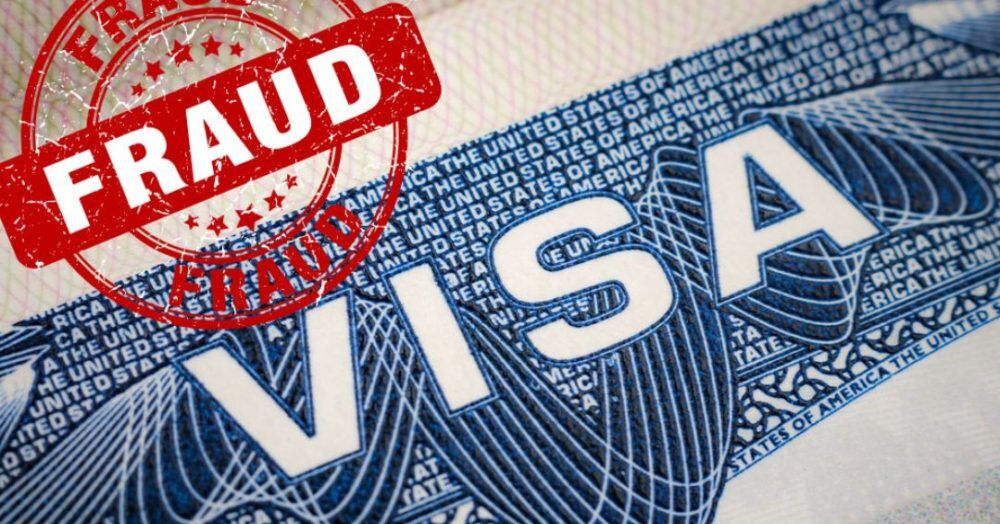ALEJANDRO Tumandao Nario, president and owner of A&A Enterprises, a manpower agency that provides employee labor services to local businesses and individuals on Saipan, was sentenced Friday by the federal court to a 21-month imprisonment for fraud and misuse of visa.
Chief Judge Ramona V. Manglona of the District Court for the NMI also gave Nario, 65, credit for the four days he has already served.
Upon release from imprisonment, he will submit to a term of supervised release of three years and comply with several conditions.
He will likewise pay a $7,000 fine, and a special assessment fee of $100.
A citizen of the Republic of the Philippines and a lawful permanent resident in the CNMI, Nario will self-surrender once notified by the U.S. Marshals Service and the U.S. Probation Office. He will also report to the U.S. Probation Office for monitoring pending placement by the U.S. Marshals Service.
At the same hearing, Judge Manglona also sentenced Rosalee Bangot Abejo to six months home detention and probation of three years. Abejo, 47, was not ordered to pay fines but she will pay a $100 special assessment fee and perform 50 hours of community service.
Abejo is a citizen of the Republic of the Philippines residing in the CNMI.
The case against Mylene Casupanan, Nario’s co-defendant, is still pending. Casupanan, who was charged separately with one count of conspiracy to defraud the U.S., has pled not guilty. As of press time Sunday, no other court information was available regarding Casupanan’s case.
According to the indictment against Casupanan, she conspired with Nario to defraud the U.S. in filing CW-1 petitions to U.S. Citizenship and Immigration Services.
In a statement, Shawn Anderson, the U.S. attorney for the Districts of Guam and the Northern Mariana Islands, said since its incorporation in January 2019, Nario’s A&A Enterprises facilitated an unlawful scheme to acquire CW-1 nonimmigrant visas for foreign citizens to enter and remain in the CNMI.
“Nario and his staff submitted petitions to U.S. Citizenship and Immigration Services for at least 99 known foreign citizens,” Anderson said.
“The petitions included contracts of employment, specifying terms, hours, and wages to be paid. A&A Enterprises did not intend to employ these foreign citizens. The scheme was merely a mechanism to get them temporary immigration status. After paying $1,500.00 to $2,000.00 to A&A Enterprises for their CW-1 visas, once in the CNMI, these foreign workers would gain nondocumented jobs such as in construction, groundskeeping, and housekeeping, and then pay A&A Enterprises a fee of $194.00 every two weeks to keep their status,” Anderson added.
“The CW-1 visa program requires businesses petitioning for foreign workers to prove there is a demand for certain jobs and that those jobs for some reason cannot be filled by available United States citizens. The petitioning business must also pay the administrative fees and travel expenses for the foreign workers. But in this case, foreign workers were required to pay for these expenses and acquire their own jobs, while A&A Enterprises profited,” Anderson said.
As for Abejo, Anderson said during its investigation of A&A Enterprises, Homeland Security Investigations discovered that she was assisting Nario’s company by providing documents and other templates included with fraudulent visa petitions by A&A Enterprises.
“Abejo also relied upon staff at A&A Enterprises to electronically modify documents, which Abejo used to fraudulently submit CW-1 and CW-2 petitions for two friends, and her own husband,” Anderson said.
He added, “The CW-1 program continues to be abused by certain employers in the CNMI. The public and the workers deserve a visa system that is free from fraud and waste. We will prosecute this unlawful conduct to hold employers accountable and to promote fairness among those seeking employment in the CNMI.”
According to John F. Tobon, special agent in charge of HSI Honolulu, “These business owners defrauded many people who believed they were coming to the CNMI for legitimate jobs. HSI will continue to investigate these crimes vigorously to protect the integrity of our immigration system and those who are victimized by these con-artists.”
Assistant U.S. Attorney Albert S. Flores Jr. prosecuted the case. Nario was represented by attorney Steven Pixley while attorney Janet King appeared for Abejo. Casupanan is represented by attorney Robert T. Torres.












